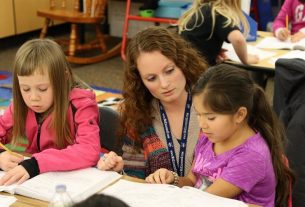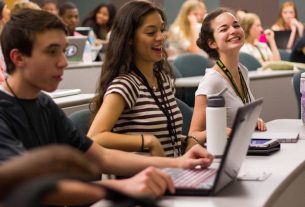The world is smack dab in the middle of a digital revolution. The era when rote learning was the norm is long gone. The time when static classrooms were all that was required to teach is a thing of past. The next generation is moving towards experiential learning. Colleges, universities and even schools are bringing in a new future of education where business simulation games are the standard. In this article, we explore what experiential learning and the things that it entails is.
• Understanding experiential learning: When technology, schools, and community combine to teach a concept, topic or subject to a learner it is called experiential learning. The objective is to ensure that a person realises that what they are being taught is directly related to their world. This type of knowledge also allows an individual to dive deep into concepts. It moves beyond theoretical education and steps into action which gives the learner the freedom to make errors. It is by making mistakes that they are able to comprehend better and learn faster.
Furthermore, experiential learning is personal. Each student can understand and grasp a concept at their own pace. They are not limited by the speed with which another person learns. A student can also be as creative in understanding a subject as they want. Instead of seeing mistakes as a negative consequence they are celebrated because they add to the learning curve. To guide the students, generally, there is an advisor.
• The Need Of Experiential Learning: The number one reason that gave rise to a learner-focused method was the mingling of students. Imagine a school that has individuals from 50 different countries. Each person has had a primary education that was different from the others which means they way they imbibe new knowledge also varies. So, how does a school like this create a curriculum that fits all? The answer lied with experiential learning – a method where the student-owned their learning. A procedure that had not set formula for success.
• The Framework of experiential learning: When a college or school is building coursework that is based on experiential learning, they need to think of 7 competencies. These competencies form a structure around which education can be focused on an individual.
They are:
o Self-Assessor is one who thinks of health, mind, spirituality, and organization
o Contributor makes a difference to the surrounding world while having empathy and understanding
o A creator is an innovator, designer, and maker of new things
o Communicator uses oral, written, visual, musical, non-verbal and dance modes with compassion
o Collaborator has the ability to be a team member, leader, and negotiator, sharer
o Explorer is the person who shows curiosity, takes risks and experiments
o A thinker is creative, critical, analytical and broad-minded
Education has undergone a transformation, and any academic institute who wants to stay ahead needs to keep up. Learning theories and practices with real-life experience is the only way forward because one can understand concepts at a deeper level and create memorable learning experiences.




